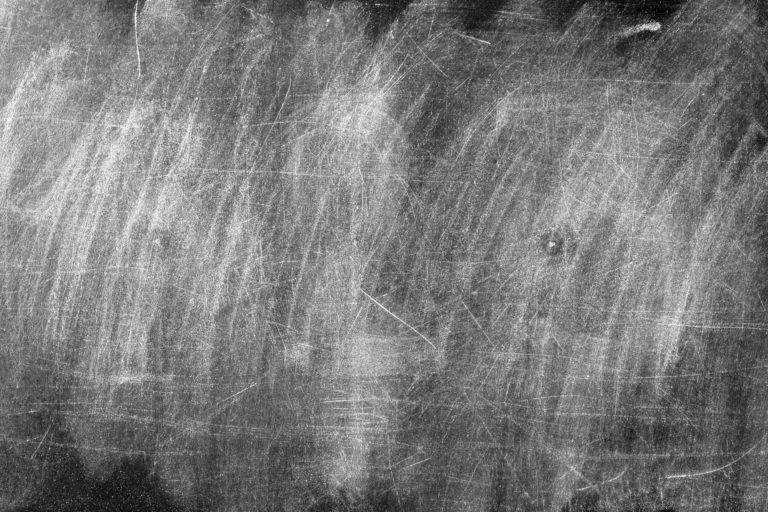
Quick Tips
You walk up to the chalkboard, ready to brainstorm, only to find it covered in layers of smeared chalk dust and ghostly remnants of past lessons. No matter how hard you wipe, the board never seems truly clean. Sound familiar? Chalkboards are a nostalgic staple in classrooms, offices, and cafes, but keeping them clean requires more than just an occasional swipe with an eraser.
Why Cleaning a Chalkboard Matters
A well-maintained chalkboard ensures better readability, longevity, and a dust-free environment. Over time, chalk residue builds up, leaving a cloudy, hard-to-read surface that hinders visibility. If left unchecked, excessive dust can also trigger allergies and respiratory issues. Regular cleaning removes buildup, preserves the board’s surface, and keeps writing crisp and clear.
What You’ll Need for Cleaning a Chalkboard
Before starting, gather these essential cleaning tools:
- Microfiber cloth or felt eraser – For routine dry cleaning.
- Distilled water – Prevents chalk dust from re-depositing.
- White vinegar or mild dish soap – Breaks down stubborn chalk residue.
- Spray bottle – Ensures even application of cleaning solution.
- Melamine sponge (Magic Eraser) – Helps remove ghosting and tough stains.
- Soft-bristled brush – Clears chalk dust from hard-to-reach areas.
- Chamois cloth or dry towel – Dries the board to prevent streaks.
How to Clean a Chalkboard in 6 Steps
1. Erase the Board with the Right Technique
Start by using a high-quality felt eraser or microfiber cloth to remove as much loose chalk as possible. Wipe in a consistent up-and-down or side-to-side motion, rather than circular motions, to prevent smudging. Shake out the eraser frequently or use a soft-bristled brush to remove excess chalk dust. Avoid pressing too hard, as this can embed dust deeper into the surface, making it harder to clean later. This step ensures that the wet cleaning process is more effective and prevents unnecessary streaking.
2. Mix a Gentle Cleaning Solution
For everyday cleaning, fill a spray bottle with distilled water. Hard tap water can leave mineral deposits that cause streaking. For deeper cleaning, mix a solution of one part white vinegar to ten parts water or add a few drops of mild dish soap to a quart of water. Vinegar’s natural acidity dissolves chalk residue without damaging the board’s surface. Shake the solution well before applying to ensure even distribution.
3. Wipe the Board Using a Damp Cloth
Lightly spray the cleaning solution onto a microfiber cloth or sponge, rather than directly on the board, to prevent oversaturation. Wipe the board in one continuous direction, covering the entire surface. If streaks or ghosting remain, apply slightly more pressure while keeping the cloth damp but not soaking wet. Rinse and wring out the cloth periodically to avoid spreading excess chalk residue back onto the board.
4. Use a Melamine Sponge for Stubborn Stains
If regular wiping doesn’t remove old chalk marks or ghosting, use a melamine sponge (Magic Eraser). Dampen the sponge slightly and rub it gently in circular motions over stubborn areas. Melamine sponges act as micro-abrasives, lifting embedded chalk without harming the board. Be cautious—using too much pressure can wear down the board’s surface over time. Always follow up with a damp microfiber cloth to remove any remaining residue.
5. Dry the Board Completely to Prevent Streaks
After cleaning, wipe the board with a chamois cloth or a dry microfiber towel to remove excess moisture. Let the board air dry for at least 10-15 minutes before writing on it again. Writing on a damp board can cause chalk to stick unevenly and leave behind more ghosting, making it harder to erase later. Ensuring the board is completely dry prevents streaks and maintains its smooth surface.
6. Maintain Your Chalkboard for Long-Term Use
To keep your chalkboard in optimal condition, establish a regular cleaning routine. Dust the board daily with an eraser or cloth and deep-clean it at least once a week. Use high-quality chalk, as cheaper brands contain more dust and can leave stubborn residue. If your board becomes excessively worn, consider reapplying chalkboard paint to refresh its surface and restore a clean, smooth writing area.
How Professionals Maintain Chalkboards
Professional maintenance services often use advanced techniques, including:
- Specialized chalkboard cleaners – Formulated to prevent ghosting and residue buildup.
- Anti-static treatments – Reduce dust attraction for a cleaner writing surface.
- Chalkboard resurfacing – Applies a fresh coating of chalkboard paint to restore usability.
- Steam cleaning – Effectively removes years of chalk buildup without chemicals.
If your chalkboard has severe staining, deep scratches, or an uneven surface, professional resurfacing may be the best option to restore it (educational board maintenance guide).
How Often Should You Clean Your Chalkboard?
- Daily: Lightly erase and wipe with a dry cloth.
- Weekly: Perform a damp cleaning with vinegar or dish soap solution.
- Monthly: Deep clean using a melamine sponge to remove ghosting.
- As needed: Resurface with chalkboard paint if ghosting becomes permanent.
Final Thoughts
A clean chalkboard isn’t just about aesthetics—it improves readability, extends the life of your board, and keeps dust under control. With the right cleaning techniques, your chalkboard will stay in pristine condition for years to come.
For more expert surface cleaning tips, check out How to Clean a Whiteboard. Keep your writing surfaces crisp and clear!